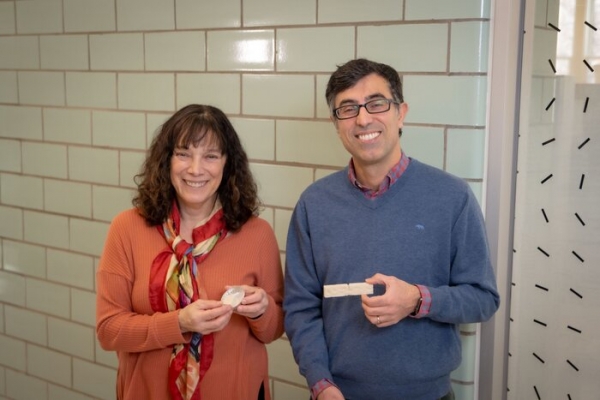Worcester Polytechnic Institute (WPI) researchers Nima Rahbar and Suzanne Scarlata have received $692,386 from the National Science Foundation (NSF) to improve and develop new functions for their Enzymatic Construction Material (ECM), a “living” low-cost negative-emission construction material they created to address one of the largest contributors to climate change—concrete—by providing what they refer to as “a pathway to repair or even replace [traditional] concrete in the future.” Rahbar and Scarlata have already made their research available for commercial use through a start-up called Enzymatic, Inc.; this new funding will also allow them to:
- explore new avenues for ECM’s use, including repairing cracks in different types of glass, such as eyeglass lenses, cell phone screens, and car windshields.
- develop a program to educate diverse populations of underprivileged girls—in Worcester and in Africa—about engineering and construction.
Read more at Worcester Polytechnic Institute
Image: WPI researchers Nima Rahbar and Suzanne Scarlata hold up samples of their enzymatic construction material (Credit: Matthew Burgos)


